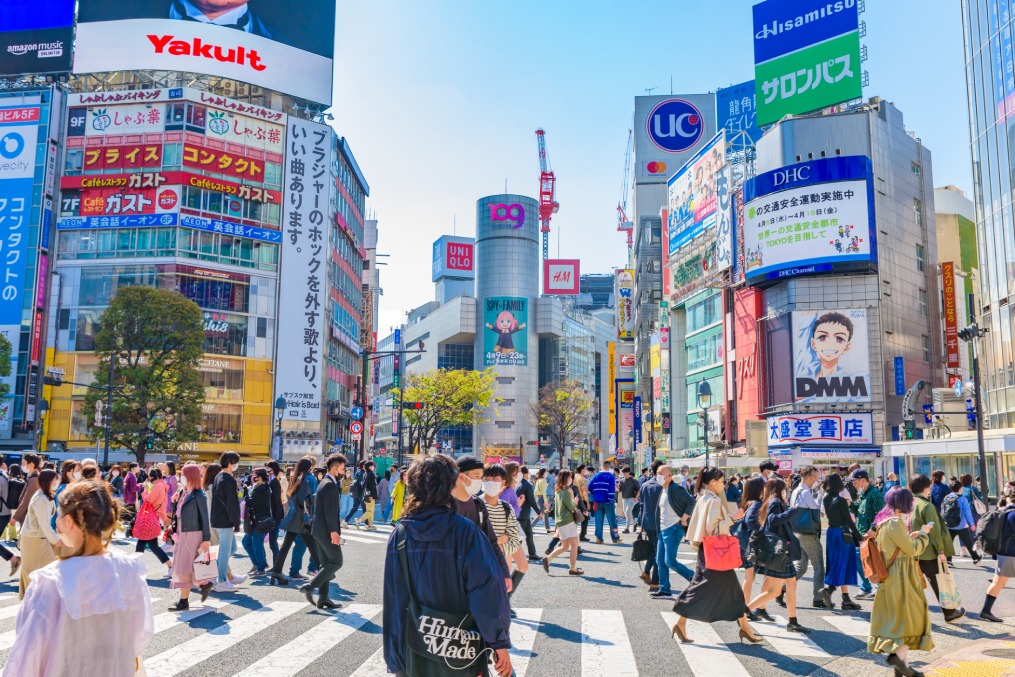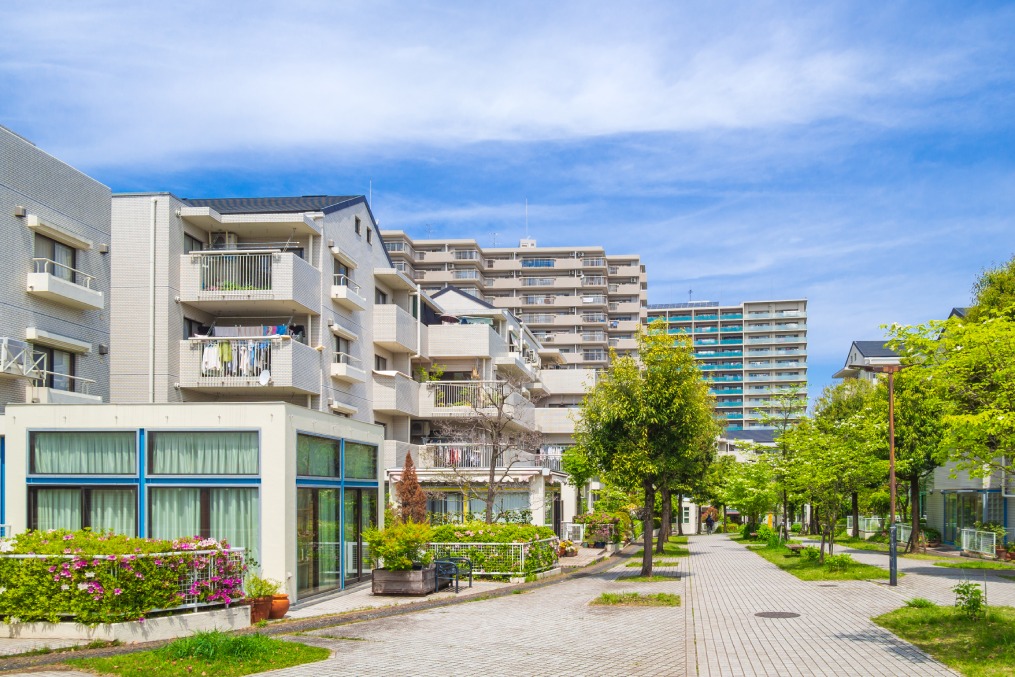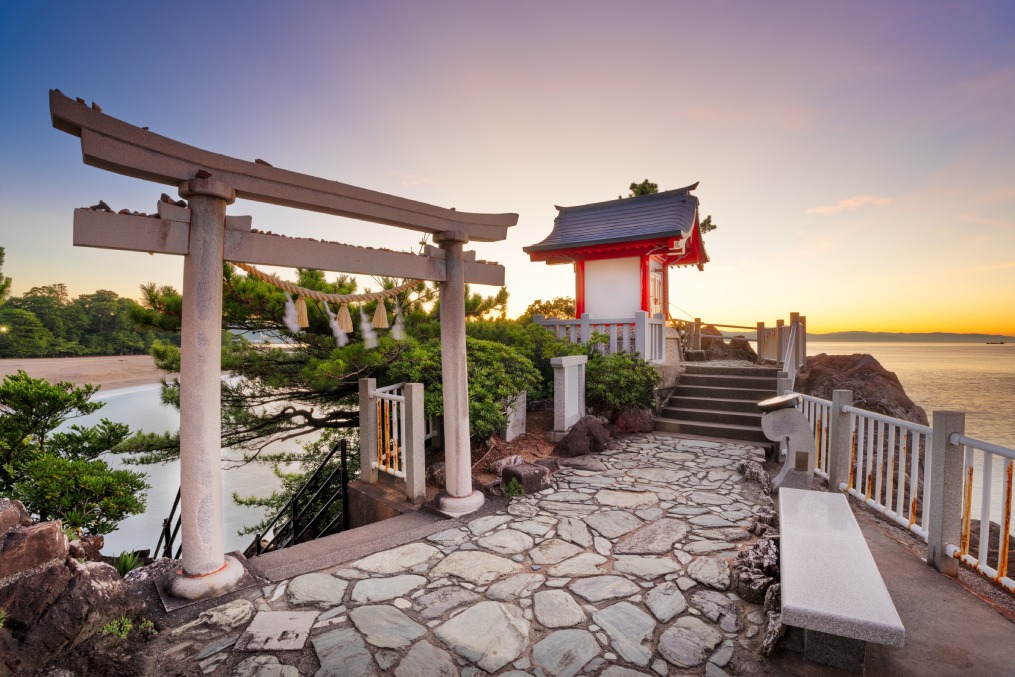Relocation from San Diego to Japan: Your Complete Guide
Nov 27, 2024

Trading California’s golden sunsets for Japan’s cherry blossoms is an adventure that’s as exhilarating as it is transformative. From cultural immersion to logistical planning, moving from California to Japan is a journey that opens doors to new perspectives, experiences, and challenges.
Whether you’re drawn to Japan’s harmonious blend of ancient traditions and cutting-edge innovation or its efficient way of life, this California to Japan expat guide will walk you through the process step by step. Let’s make your transition smoother and your dream of living in Japan a reality.
Cultural, Lifestyle, and Economic Contrasts

Cultural Differences: Harmony vs. Individualism
In California, individuality is celebrated, and self-expression is encouraged. In Japan, the focus shifts to social harmony, where community takes precedence. Politeness, respect, and non-confrontation define interactions. Expect to bow instead of shaking hands and to hear indirect Nos phrased as it might be difficult.
For example, imagine needing help at a store. In Japan, a store clerk might go above and beyond to assist, even if they don’t speak English. This deep commitment to service, known as omotenashi, is a hallmark of Japanese culture.
Lifestyle Shifts: Urban Bustle Meets Quiet Retreats
If you’re accustomed to California’s sprawling suburbs and car-dependent lifestyle, Japan’s compact cities and efficient public transportation will be a refreshing change. Major hubs like Tokyo and Osaka offer 24/7 convenience, vibrant nightlife, and world-class shopping.
But within reach of these urban areas are tranquil retreats—Zen gardens, hot springs (onsens), and historical landmarks where you can escape the bustle.
Economic Realities: What’s More Affordable?
While California’s cost of living is famously high, Japan can offer a financial respite in certain areas. For example:
- Rent: A one-bedroom apartment in central Tokyo averages $1,260, far less than Los Angeles or San Francisco.
- Transportation: Japan’s train systems, like the Shinkansen (bullet train), are cost-effective and reliable, making car ownership optional.
- Dining Out: Eating out can be surprisingly affordable, with a meal at a local ramen shop costing as little as $7.
However, imported goods and housing deposits (including “key money,” a non-refundable landlord gift) can be a financial surprise for newcomers.
Navigating Visa and Legal Requirements

Moving internationally requires navigating a maze of legalities. Japan is no exception, but with the right guidance, you’ll feel more confident about the process.
Step 1: Determine Your Visa Type
- Work Visa: Requires a job offer from a Japanese employer and is tailored to professionals in fields like teaching, IT, and engineering.
- Highly Skilled Professional Visa: Ideal for those with advanced degrees and specialized skills, offering residency perks.
- Startup Visa: Perfect for entrepreneurs launching businesses in Japan.
- Student Visa: For individuals pursuing higher education.
Step 2: Obtain the Certificate of Eligibility (COE)
The COE is your gateway to a Japanese visa and must be secured through a sponsor, such as your employer or school. Once you receive it, you can apply for your visa at a Japanese consulate in California.
Step 3: Register Upon Arrival
- Residence Card (Zairyu Card): Register at your local ward office within 14 days of arrival. This card is essential for almost every aspect of life in Japan, from opening bank accounts to signing rental contracts.
- National Health Insurance (NHI): Enroll at the ward office. This system covers about 70% of medical costs.
The Logistics of Moving
Relocating from San Diego, CA, to Japan is no small feat. Here’s how to tackle it like a pro:
Decluttering Before the Move
Japanese homes are designed with efficiency in mind. Rooms are smaller, closets are compact, and minimalism reigns supreme.
Tip: Pare down your belongings. Sell or donate items that won’t fit your new lifestyle. Consider buying furniture and large appliances locally to save on shipping.
Shipping Options
- Air Freight: Quick but costly, ideal for essentials.
- Sea Freight: Budget-friendly for large items but can take several months.
- Customs: Household goods used for over six months are typically duty-free. Restricted items, like certain medications, require prior approval.
Professional Help
Hiring San Diego international movers instead of moving brokers simplifies the process. Look for companies experienced in Japan relocations to avoid surprises at customs.
Finding a Home

In Japan, housing options vary widely. Apartments, or mansions, are popular choices for expats.
- Rental Costs: Upfront fees can include deposits, non-refundable “key money,” and agency fees totaling 4–6 months’ rent.
- Neighborhoods: Tokyo’s Shibuya and Minato wards offer expat-friendly communities, while Kyoto’s quieter districts appeal to history lovers.
- Japan’s rental system involves significant upfront costs, including:
- Deposit: Usually 1–2 months’ rent, refundable.
- Key Money (Reikin): A non-refundable “thank you” payment to the landlord, equal to 1–2 months’ rent.
- Agency Fees: Charged by real estate agents, typically 1 month’s rent.Japan’s rental system involves significant upfront costs, including:
Expat-Friendly Neighborhoods
- Tokyo: Shibuya, Minato, and Azabu are popular for their proximity to international schools and vibrant expat communities.
- Kyoto: Great for a quieter, culturally rich environment.
- Osaka: A foodie haven with a dynamic urban vibe.
Settling In: Utilities, Transportation, and Local Resources
Utilities
- Electricity & Gas: Providers like TEPCO or Tokyo Gas supply most urban areas. Bills can be paid online or at convenience stores.
- Internet: Japan boasts some of the fastest internet speeds. Providers like SoftBank and NTT offer services tailored for expats.
Transportation
Japan’s public transport is world-class.
- Train Network: High-speed bullet trains (Shinkansen) connect cities, while subways and local trains cover urban areas.
- Commuter Passes (Teikiken): Save on regular travel between home and work/school.
- Driving: Not necessary in cities, but if you plan to drive, you’ll need to convert your U.S. license to a Japanese one (Gaimen Kirikae).
Embracing Japanese Culture

Adjusting to Japan’s social norms might feel like learning a new dance. Here’s what to expect:
- Greetings Matter: Bowing replaces handshakes, and the depth of the bow signals the level of respect.
- Shoes Off: Always remove shoes when entering homes or traditional spaces.
- Quiet Public Behavior: Avoid speaking loudly on public transport or eating while walking.
Overcoming Language Barriers
While many younger Japanese individuals have basic English skills, knowing key phrases like sumimasen (excuse me) and arigatou gozaimasu (thank you) goes a long way.
Duolingo, iTalki, and language schools like Coto Academy can help you get conversational quickly.
Relocation Challenges and Solutions
Relocating comes with bumps in the road, but they’re all surmountable:
· Challenge: Compact living spaces.
Solution: Invest in multi-functional furniture like foldable beds or tables.
· Challenge: Missing home comforts.
Solution: Stock up on familiar items before moving and explore local substitutes once settled.
· Challenge: Cultural missteps.
Solution: Observe, ask questions, and don’t shy away from apologizing. Japanese people appreciate effort and humility.
Building Community and Resources
Making connections in a new country can feel isolating, but Japan’s expat networks are robust:
- Expat Communities: Platforms like Meetup, Internations, and Tokyo American Club host regular events for networking and socializing with California expats in Japan.
- Local Support: Many cities offer free Japanese classes for residents through ward offices.
- Volunteer Opportunities: Joining community events can help you build relationships while giving back.
FAQs for Relocating from California to Japan

1. Is it necessary to learn Japanese?
Not mandatory, but basic phrases will smooth daily interactions and help you connect with locals.
2. What’s the average cost of moving?
Expect to spend $6,000–$10,000 for shipping belongings via sea freight.
3. How do I meet people in Japan?
Join expat groups, attend community events, and consider language exchange meetups.
4. Can I bring my pet to Japan?
Yes, but Japan has strict animal import regulations, including quarantine periods.
5. What are the healthcare options in Japan?
Enroll in National Health Insurance (NHI), which covers 70% of most medical costs.
Move From California to Japan With Atlas Allied!
A California to Japan relocation is more than a geographical shift—it’s a personal evolution. Let Atlas Allied help you. Ready to join the California expats in Japan? Let us know! We have been helping people like you make life-changing moves since 1925. Get a free quote today.